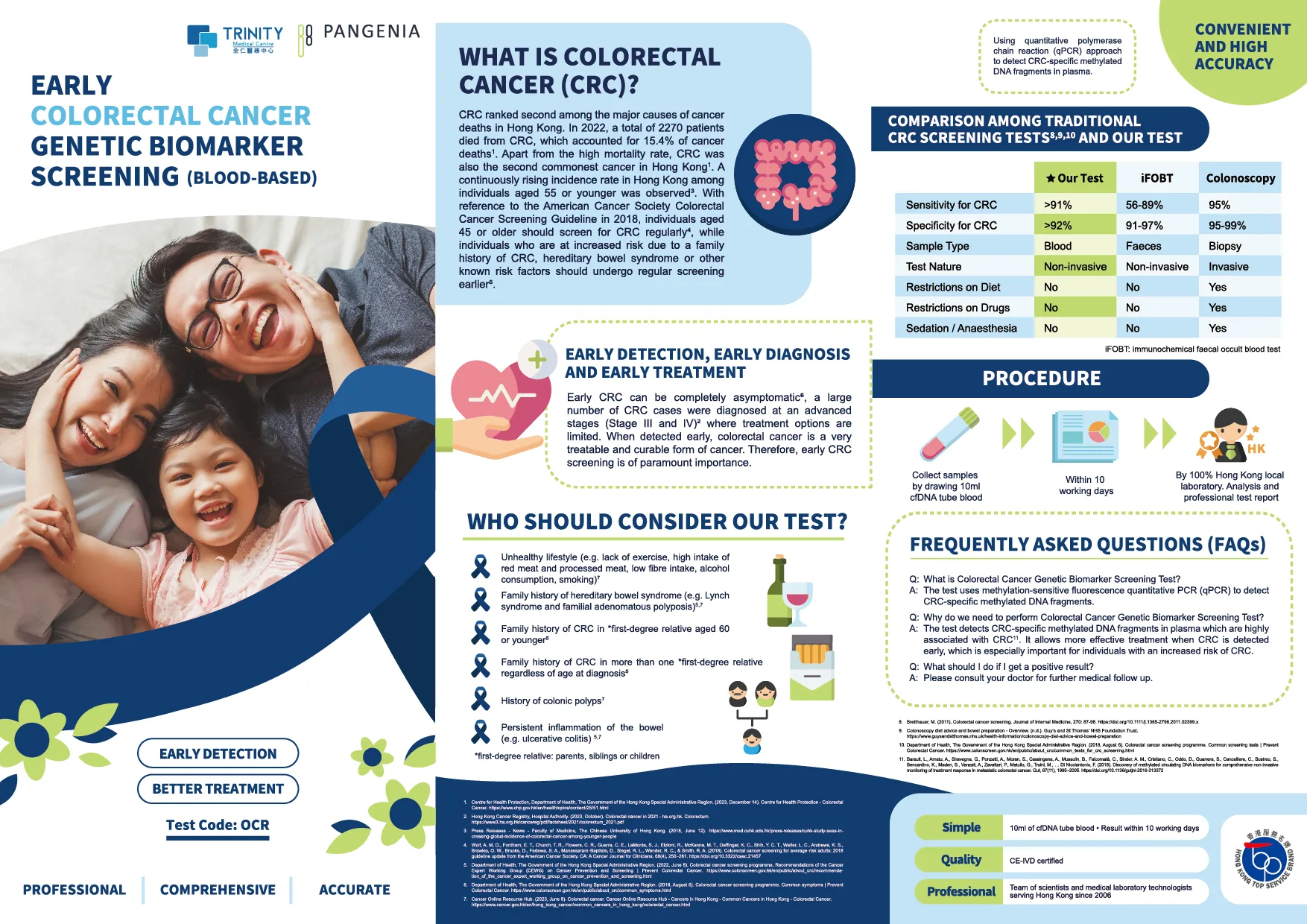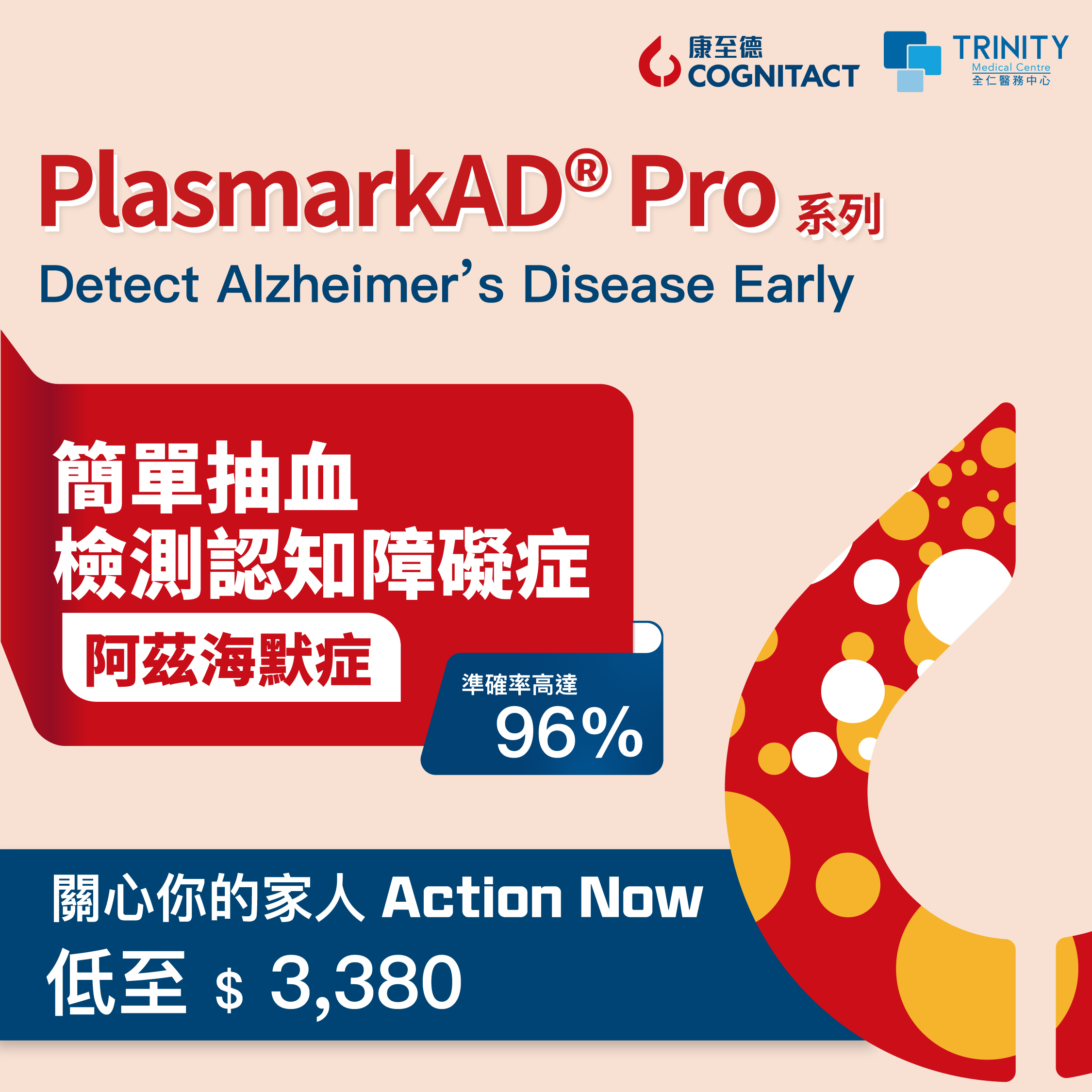Description
In today's fast-paced world, our modern lifestyle choices including poor diet habits, lack of physical activity, and high stress levels can significantly impact our digestive health and increase the risk of colorectal cancer. This is particularly concerning for individuals with a family history of cancer or those experiencing changes in bowel health. Regular monitoring becomes crucial as colorectal cancer often develops silently, with symptoms like digestive discomfort and weight changes appearing gradually. Our Early Colorectal Cancer Genetic Biomarker Screening offers a convenient and non-invasive blood test approach to cancer prevention and early detection. This innovative screening can help identify potential risks before they develop into serious conditions, particularly important for those with bowel polyps or concerning lifestyle factors. Don't wait for symptoms to worsen - take proactive steps for your digestive health today with our comprehensive genetic screening service. Your health journey begins with one simple blood test.
Early Colorectal Cancer Genetic Biomarker Screening (Blood Test)
Colorectal cancer, also known as colon and rectal cancer, is a malignant tumor affecting the large intestine (colon and rectum). In Hong Kong, colorectal cancer ranks as the second deadliest cancer. In 2022, it caused 2,270 deaths, accounting for 15.4% of cancer-related deaths. Besides its high mortality rate, colorectal cancer is the second most common cancer in Hong Kong. The incidence rate among individuals aged 55 and below continues to rise. According to the American Cancer Society’s 2018 guidelines, individuals aged 45 and above should undergo regular colorectal cancer screening. Those with a family history of colorectal cancer, hereditary bowel diseases, or other known risk factors should start screening earlier.
Risk Factors for Colorectal Cancer
- Family History: Having direct relatives who have had colorectal cancer increases risk.
- Dietary Habits: A diet high in fat and low in fiber may increase risk.
- Obesity and Inactivity: Lack of exercise and obesity are considered significant risk factors.
- Smoking and Alcohol Abuse: These lifestyle factors are associated with various cancers.
Symptoms of Colorectal Cancer
Early colorectal cancer may not show obvious symptoms, but as the disease progresses, the following symptoms may occur:
- Abdominal Pain: Unexplained discomfort or pain in the abdomen.
- Changes in Bowel Habits: Including diarrhea, constipation, or changes in frequency.
- Blood in Stool: Presence of red or black blood during bowel movements.
- Weight Loss: Unintentional weight loss.
- Fatigue: Persistent fatigue and weakness.
Who Should Undergo Colorectal Cancer Genetic Biomarker Screening?
- Family History: Individuals with direct relatives (such as parents or siblings) who have had colorectal cancer.
- Age Factor: Individuals aged 45 or older, as the risk of colorectal cancer increases with age.
- Previous Medical History: Individuals who have had colorectal polyps or other bowel diseases (such as inflammatory bowel disease).
- Lifestyle: Smokers, those who lack exercise, or have a high-fat diet—these are known risk factors.
- Symptomatic Presentation: Individuals experiencing unexplained abdominal pain, bleeding, or changes in bowel habits should undergo screening early.
Screening Content
Genetic biomarker screening primarily analyzes blood samples to assess the risk of colorectal cancer. Compared to stool tests and invasive procedures, blood tests are generally more acceptable, reducing refusal rates due to preparation and procedural discomfort. Additionally, blood tests do not require hospitalization or anesthesia, and have shorter recovery times compared to invasive tests (like colonoscopy).
Advantages of Blood Tests
- Non-Invasive: No internal examination required, reducing discomfort.
- Quick and Convenient: The testing process is simple and fast, usually requiring no special preparation.
- High Safety: No anesthesia or other risks involved, suitable for all age groups.

Booking Process and Terms & Conditions:
- Customers will receive a confirmation email for successful payment after purchasing a health check-up plan from the Trinity Medical Centre online store. Trinity Medical Centre will contact customers during subsequent business hours/days to schedule the health check-up appointment. Customers may also contact us for an appointment after order confirmation (Tel: 2192 7022 or Email: tmc@trinitymedical.com.hk).
- This health check-up offer is exclusively available on Trinity Medical Centre’s online store and cannot be used with other promotions. It is non-transferable, non-refundable, and cannot be exchanged for full or partial cash value.
- The health check-up plan is valid at Trinity Medical Centre in Central or Causeway Bay. The offer expires 90 days after the purchase. Customers must undergo the relevant examination on or before the expiration date; the offer becomes void after this date.
- For any inquiries, please call 2192 7022 or email tmc@trinitymedical.com.hk.
- All service users must present identification documents and a successful payment confirmation email during the registration at the centre to be eligible for the service.
- If a parent or guardian purchases the service for a minor, the service user must accompany the parent or guardian to the centre for the examination.
- In case of any disputes, Trinity Medical Centre reserves the right of final decision.






